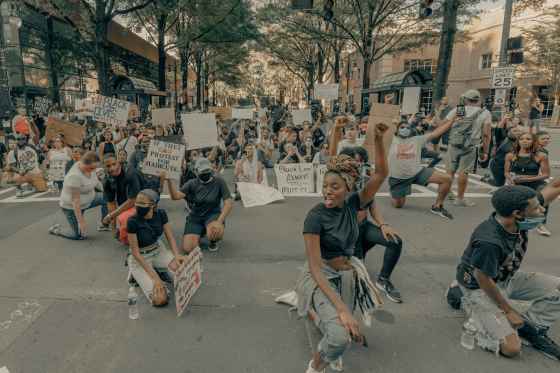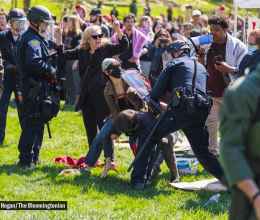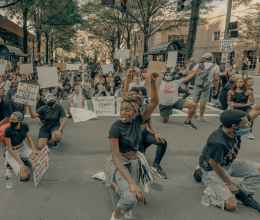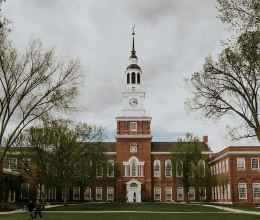Bloomington, Ind. – On Thursday, pro-Palestinian protesters on the campus of Indiana University in Bloomington joined thousands of like-minded people across the United States in exercising protected political speech. Students, faculty, and others peacefully and safely occupied Dunn Meadow, a longtime campus site of protests — including occasional overnight protests. University officials changed a decades-old policy Thursday morning in response to similar campus protests around the country.
The changed policy prohibited temporary or permanent installation of structures in Dunn Meadow (including, but not limited to posters, tents, etc.). Soon after protesters began setting up tents in Dunn Meadow, University officials and Indiana State Police warned them to take the tents down. A few hours later when the protesters did not remove the tents, police moved to detain and arrest them. Per news reports, 33 protesters were arrested and released. Some, if not all, of those arrested have been told they are banned from campus for one year. Those subject to a ban include faculty and currently enrolled students preparing for final exams. As of this morning, those students have received no instruction on how they are to participate in exams or attend classes over the next twelve months.
ACLU of Indiana Executive Director Chris Daley issued the following statement in response to the actions of Indiana University and the Indiana State Police:
“Free speech and political protest are essential components of a healthy democracy. It is alarming that a decades-old IU-Bloomington policy would be specifically changed on the morning of, and in response to, a planned protest against the State of Israel’s treatment of Palestinians. It is further troubling that University officials and Indiana State Police moved in with force only hours after the protest began without any articulation of an imminent risk to public safety. None of these actions are in line with our nation’s free speech principles.
“Worse still are the orders that some protesters received banning them from entering the IU-Bloomington campus for one year. The ACLU of Indiana is concerned that these orders, which act as a de facto suspension from current and future classes, were issued without due process and are disproportionately severe.
“I recognize the enormous pressure being exerted by elected officials and media personalities on public higher education administrators in our state and nationwide. However, these officials must resist pressure to unnecessarily restrict or prohibit student protest – even on contentious issues – and adhere to their stated commitment to free speech, peaceful protest, and dissent on campus. Public higher education administrators stand on the front lines of free speech in this country; I urge them to use their positions to protect the constitutional rights of everyone on their campuses.”





